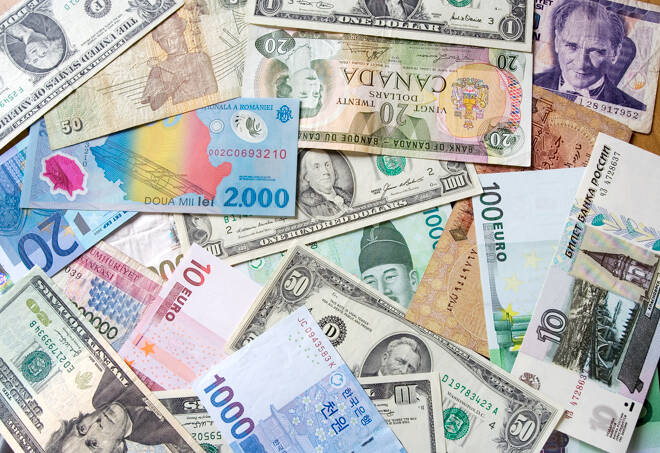Dollar Surging, Euro Plunging
By:
Written on 17/11/2021 by Lukman Otunuga, Senior Research Analyst at FXTM
The major move this week in FX space has undoubtedly been the breakdown in the world’s most traded currency pair. The dollar touched its strongest point against the euro in over 16-months this morning with five straight days of gains.
Tailwinds accentuate greenback strength
Recent macro data and central bank talk have put a few more nails in the coffin of the single currency. Last week’s surge in US consumer price inflation to a three-decade high revived bets on the Federal Reserve tightening monetary policy. US CPI rose 6.2% in October from a year ago, exceeding analysts’ estimates. Perhaps more importantly, some are now forecasting prices could push above 7% in the coming months. Pipeline pressures are showing little sign of subsiding and inflation expectations are climbing as well.
Yesterday’s decent beat in US retail sales also tells us that household wealth and incomes are still rising, even if consumers have one eye on inflation. It seems the mild soft patch in the US in the third quarter is behind us, with spending by consumers once again set to be a key driver of the US economy in the final three months of the year.
Central bankers add to the mix
Market expectations of the first US rate rise have now moved from 2023 into the middle of next year. Traders believe that inflation will remain persistent, forcing the Fed into adjusting monetary policy and raising interest rates. The “patience” stance adopted by Chair Powell at the recent central bank meeting also appears to be dated, with more in the “transitory” Fed camp shifting views.
On the flip side, ECB President Lagarde recently confirmed that eurozone policymakers will stay dovish for much longer. She declared at her appearance at the European Parliament that the conditions for a rate rise were very unlikely to be met in 2022 with growth momentum moderating and no evidence of higher inflation feeding into wage growth. Even some more hawkish ECB members have signalled that the bank might keep its main deposit rate below zero until after it ends its crisis-fighting bond-buying programme.
This all comes on the back of headline reports that further lockdowns are under way on the continent to combat a fourth Covid wave. This raises risks to the outlook for the eurozone’s economic recovery in the current quarter.
EUR/USD collapse
Once the October low at 1.1524 in EUR/USD was decisively broken last Wednesday, the bears have had a field day, breaking other key support levels like the midpoint of the March 2020 to January 2021 move at 1.1495. There is no other obvious support in the near term, with big figure levels like 1.13 possibly providing psychological support. That said, conditions are oversold on several indicators which may prevent more straight-line falls.
The debate about the timing of Fed tightening is likely to be a prime source of volatility in 2022 with investors focused on both data and Fed-speak going forward.
Written on 17/11/2021 by Lukman Otunuga, Senior Research Analyst at FXTM
For more information, please visit: FXTM
Disclaimer: This written/visual material is comprised of personal opinions and ideas. The content should not be construed as containing any type of investment advice and/or a solicitation for any transactions. It does not imply an obligation to purchase investment services, nor does it guarantee or predict future performance. FXTM, its affiliates, agents, directors, officers or employees do not guarantee the accuracy, validity, timeliness or completeness of any information or data made available and assume no liability for any loss arising from any investment based on the same.
Risk Warning: CFDs are complex instruments and come with a high risk of losing money rapidly due to leverage. 81% of retail investor accounts lose money when trading CFDs with this provider. You should consider whether you understand how CFDs work and whether you can afford to take the high risk of losing your money.
About the Author
Lukman Otunugaauthor
Lukman Otunuga is a research analyst at FXTM. A keen follower of macroeconomic events, with a strong professional and academic background in finance, Lukman is well versed in the various factors affecting the currency and commodity markets.
Advertisement
